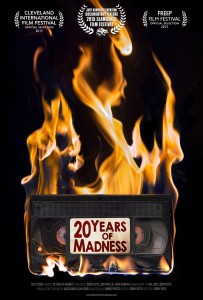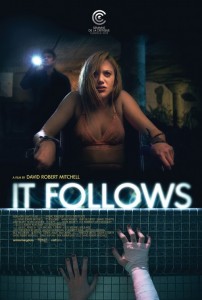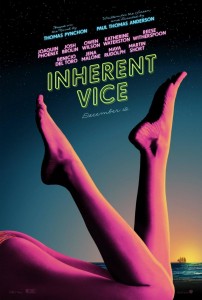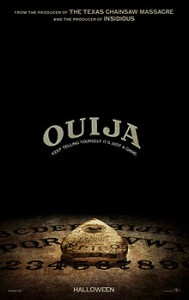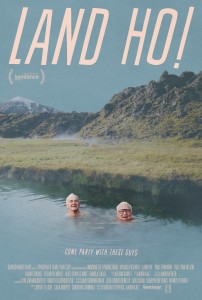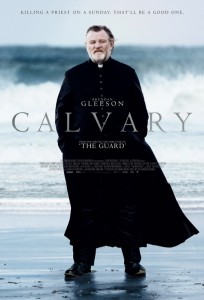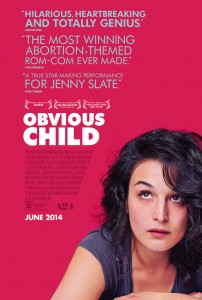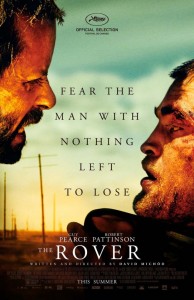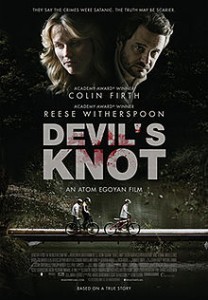At the age of sixteen Charles Jason Baldwin was arrested, put on trial, and convicted for the killing of three eight-year-old boys in West Memphis, Arkansas. The killings were viewed as ritualistic and Satanic. The only evidence against Jason Baldwin was his long hair, black heavy-metal t-shirts, and his friendship with Damien Echols. In 1994, he pled innocent, yet was convicted and sentenced to life in prison. In August of 2011, after eighteen years and seventy-eight days of incarceration, in what is known as the Alford Plea, Jason pled guilty to the crime: and was released from prison. Jason Baldwin is one of The West Memphis Three.
B.C. Allen: It’s been two-and-a-half years since you were released from prison; do you feel fully acclimated to current-day society at this point?
Jason Baldwin: I don’t know if anyone ever gets fully acclimated to current-day society or not. With that being said, I am putting my life together, with a wonderful woman of my dreams. I recently married the love of my life, Holly. We’re building a life together. We have two kittens and a bunny, who act as our babies. I mean, life… life is wonderful. Everywhere we go people are just so gracious and caring, and warm and helpful. It’s been a wonderful experience.
BCA: When were you two married?
JB: We were married in December. I proposed to her in Toronto at AIDWYC, which is the Association in Defence of the Wrongly Convicted. AIDWYC is an organization Rubin “Hurricane” Carter – who just passed – started twenty years ago. Anyway, I had been carrying this ring in my backpack for maybe eight or nine months… like I’m carrying a baby. [laughs] I wanted to get her dad’s permission before I asked her. Long story short, she said “Yes”, and we are having an amazing life now.
BCA: In an alternate world, had you not entered the Alford Plea, where do you think you’d be with the case at this point?
JB: Well, you hope the courts would do what they are supposed to do… and follow the evidence and follow the procedures as they’re set down. The procedures are in place to free innocent people. The evidence was there to free us, but… since I’ve been free I’ve had some college and I had a logic professor who’s also a computer programmer, and he told me “Law is like computer programming. Law is for people and society like computer programming is for computers. But where the difference is, is that the computer has to follow that programming, and it’s going to do whatever the programming says. Whereas people are different; they don’t always do as the law has prescribed. Even though I had every hope and the law was supposed to be on my side to help me be free… I don’t know if they’d have succeeded in murdering Damien or not. And even then, the State didn’t give us the opportunity to save our names, like they should have, and thrown the case out, and opened it up. No matter how long it takes to find whoever really committed the crime. It was a hard position… a horrible position… to be put in, but ultimately, I couldn’t make the decision for Damien. He’s facing death for something he didn’t do. I couldn’t make the decision to stay for him. No one knows what it would be. But the good thing is now there’s still hope, because they didn’t execute Damien. He’s free now, Jessie’s free, I’m free. Even though we still have this Alford Plea hanging over us, there’s still hope. Even though the State officially says the case isn’t open, there’s no statute of limitations on murder. So when we do find who committed this crime – and we will – it’s a matter of time, because we’re not giving up. I believe, I hope, they’ll overturn everything now. I believe they will. And in the meantime I’ll just live my life like I have always lived it. Just do the best I can, and enjoy it. And try and carry myself with a little bit of grace and dignity, and treat everybody the same, and just love this short, precious time we all have here.
BCA: Obviously, to Arkansas the case is closed, officially. But I presume there is still an investigation going on?
JB: My attorney is still working diligently. Doing everything he can as an attorney with private investigators and stuff like that. But he’s not a State’s attorney, he doesn’t have subpoena power and things like that; so there are things he can’t do. We’re doing what we can. The State can do more and they should do more. I like to think that everybody would respect people, or a position, who would admit a mistake and try to correct that mistake and move forward, rather than just to say that there has been no mistake, and just try and hide. The big thing to do is admit that a mistake was made in convicting Damien, Jessie, and myself; and go ahead and move forward and try to find who really did this. That’s the only way that society or any of us are going to be able to heal completely.
BCA: There is almost a weird irony to me, that during your 1994 trial you only spoke three words, you said, “Because I’m innocent.” And now twenty years later you seem to be one of the most vocal of the three of you. Can you say anything about that?
JB: I could have been vocal then too, but everyone, you know… you’re in court and the Judge tells you that you can’t say anything, you can’t have an emotional outburst. No matter what you hear. No matter what type of lies are being said, or you won’t even be able to be permitted to be there at your own trial. So you sit there and you hear all these things, and you try to put the bravest face on that you can, and you hear all of these horrible things. Then you tell your attorneys and everyone who would listen where you were, the people you came into contact with, in full faith. In full faith, that your mom, my uncle, my brothers, my next door neighbor Ms. Littleton, my high school art teacher, the lady who ran the county jail; all these people who could testify for me are going to be given that opportunity, as well as myself. And then, to do everything I am told to do, and come to the trial’s conclusion and never be given those opportunities and to only be able to say, “Because I’m innocent,” it was hard. Never had a chance. Never had a chance. But no one was able to see that aspect.
BCA: I went back and read “Devil’s Knot” again recently – after having viewed the film – and I always catch something new when I read it. I noticed this time through that Dan Stidham, Jessie Misskelley Jr.’s lawyer, was only twenty seven when he took on this case. I mean, that’s what, ten years younger than you are now. Could you imagine taking that on at such a young age; or even now, knowing what you know about the law?
JB: I couldn’t.
BCA: Do you feel that your defense attorney Paul Ford did a decent job, when looking back on it all these years later?
JB: There are so many factors that played against him. I wish he would have let me testify; I wish he would have let all of my alibi witnesses testify, but even if I would have, or everybody would have, we wouldn’t have been able to combat the jury foreman who was convinced he was going to convince the rest of the jurors that we were guilty no matter what was offered, or not offered, in court. So we were up against things like that. Literally, we never had a chance. Never had a chance. From the minute the fingers were pointed at us, we never stood a chance. And that’s the saddest part of it. And that’s because, I think, it was an honest mistake that they lost the evidence from Bojangles, that was collected that night. From that point on we lost evidence… I don’t know that it would have led anywhere, but to me, a guy coming out of the very bayou that the boys would be found in the next day… Come out of there during the time that they are missing… that’s very suspicious. If that person didn’t have anything to do with it, they possibly were a witness. That evidence was very crucial and important, and it’s lost.
BCA: You believe that it was an honest mistake? That wasn’t something deceptive on Bryn Ridge’s or someone else’s part?
JB: Yea.
BCA: That’s your personal belief?
JB: Yea. I always try and give people what was supposed to have been given to me at my trial, and that’s the benefit of a doubt. I just think it was an honest mistake.
BCA: From your interviews, and the hours of footage in the documentaries, you get the gist that you are a relatively positive person – which I have always admired about you – and you’ve always had a positive outlook on everything. That’s interesting to know that you think it was a legitimate mistake.
JB: Thank you.
BCA: With this narrative version of “Devil’s Knot”, this dramatized version of the story, what do you think it will bring to light that Berlinger & Sinofsky “Paradise Lost” Trilogy of films, or Amy Berg’s “West of Memphis” didn’t show? What do you think the appeal is going to be?
JB: I think we’re making a mistake if we try to pit them against each other, or compare them, in that sense. What we should do is look at it like this; there are a lot more people out there who watch movies and don’t view documentaries or read true-crime novels. So this is going to reach a broad base, and hopefully the people who hear of the case for the first time through the film will go back and watch the documentaries, as well, “Paradise Lost” one through three, and “West of Memphis”; read Mara’s book, “Devil’s Knot”, and Damien’s memoirs, do everything. Ultimately, it’s saying this, it’s saying, to whoever did this, if they’re still alive out there – wherever they are hiding – if they’re out there, they’re paying attention. It’s saying to them that even though the State of Arkansas says the case is closed, it says to them, we are not giving up. There is no statute of limitation on murder: the people are not giving up. We all know that Damien, Jessie and I are innocent, we all know someone did this, and we are all looking. No matter how long it’s going to take. And ultimately, the best part… for Pam Hicks, it shows her that no one is giving up; her son is not going to be forgotten. I know the hardest part for her was that Alford Plea, because the State was kind of saying to her, $60 million for wrongful imprisonment money is more important than your son; more important than knowing what happened to your son. And that’s wrong. For us, making this film was sort of a way to give that hope back to her. I witnessed that on set. Meeting all the actors and everybody that worked on set. Everyone I came across there would say that when you get a script and you get a job, you do your best at it, because that’s just what you do. But they said there was something different about this script and this story, because everybody just cared about it; and cared about the people they were representing and the people touched by the case. And to see Reese Witherspoon, who everybody loves, aside from the serious nature of this case; but to see her take Pam in her arms, and hug her and tell her everything is going to be all right. To see that love, all that healing love, that right there made the film being made worth it, just that alone.
BCA: After your release it seemed like you moved immediately to the Pacific Northwest, what is it about that area that attracted you?
JB: I had no idea where I was going when I first got out. When you grow up listening to rock n’ roll, and one of the last cassette tapes you had – before you got locked up – was Pearl Jam’s Ten… He (Eddie Vedder) looks a lot different than he did as a sixteen year old, I mean as you know, we’re both the same age. But when you’re looking at this rock star – who’s not only a rock star, but has given so much of himself when he didn’t have to, and cared about you enough to put his name out there to get you some justice and get you free, and he’s like “Hey, we’re hopping on a plane and going to my house”, you don’t say, “Oh, well I have other plans.” You get on the plane and go to Washington and try to figure things out. I didn’t know where I was going to go, or what I was going to do; because I wasn’t expecting the Alford Plea, I wasn’t expecting to get out right then. I’m looking forward to the December hearing and how long the trial is going to take; I’m just trying to face that, and then I can figure out what I am going to do when I get out. Then all of a sudden I’m out, and at a rock star’s house. In hindsight, Holly and I talked about this a lot… right then I probably could have been flown to the Sahara desert, and after what I had experienced I would have been jumping up and down “Oh, sand! Let’s stay here, I love it!” But it was very fortuitous that we landed in Seattle, because now two-and-a-half, almost going on three years now, after freedom, I’ve had a chance to travel the country, and see a couple of places in the world. And I’ve been amazed, I love every place. But honestly now, after experiencing many places, Holly and I agree, we both choose Seattle. So it’s really awesome that Seattle was the first place we went.
BCA: Do you still have family in Arkansas? Have you traveled back there since your release?
JB: Yea. Holly and I have been back several times. Her dad lives in Arkansas, and my dad lives in Arkansas; we see both of them. My mom goes back and forth between Missouri and Mississippi, and her family lives in Mississippi; so we’ve been to see them as well. She (Holly) grew up in Little Rock, went to high school there, and college; so she’s got a million-and-one friends, so every time we go back it’s always amazing. I meet people who have supported the cause… it’s just always good.
BCA: This past fall you did a Kickstarter campaign – which I gladly pledged to – how is the book coming?
JB: Thank you.
BCA: Is there a release date for that?
JB: I am hoping to have it wrapped up by the end of the year. I’ve got quite a bit written and got a lot more to write. I’m working on a chapter right now, I’m calling it “Jessie’s Girl”.
BCA: Nice.
JB: You know, like the song… [sings] “Jesse’s Girl.” Anyway, working on that chapter right now. I don’t have any chapters finished, because I’m kind of writing them all simultaneously, and just going back and forth. I’m really in the writing phase, just getting it out of me.
BCA: Just getting out the main gist?
JB: Yea, yea. Just putting it all down; then I’ll go back and get an editor and put it together in a book format, ya know, so we can get it to you, since you funded the Kickstarter. Thank you so much for the Kickstarter, because that’s what is paying the bills right now, so I can write it. I’ve never written a book before, it’s hard work. I usually get up around four in the morning, after I feed the cats and everything, then I usually get started on it around six, and work on it throughout the day.
BCA: Is the founding of Proclaim Justice going to be a part of the book?
JB: Definitely yea. I haven’t written any of that yet, I’m still experiencing it, and I’m not limiting it.
BCA: What can you tell me about Proclaim Justice?
JB: My friend John Hardin out of Texas, and I, we started this foundation called Proclaim Justice, and we’re trying to get it off the ground to help innocent people who fall through the cracks for institutions like The Innocence Project, who don’t take their case because they specialize in DNA cases. It’s for innocent people who don’t have DNA in their case; we’re trying to bring those people hope.
The author of “Devil’s Knot”, Mara Leveritt, and Jason Baldwin, worked together on a book entitled “Dark Spell: Surviving the Sentence”, which is set to be released in June. “Dark Spell” is the second part in Leveritt’s “Justice Knot” Trilogy; with a third book, “Justice Knot”, currently in the works.
“DEVIL’S KNOT” will be released on DVD and Blu-ray on June 10, 2014.


